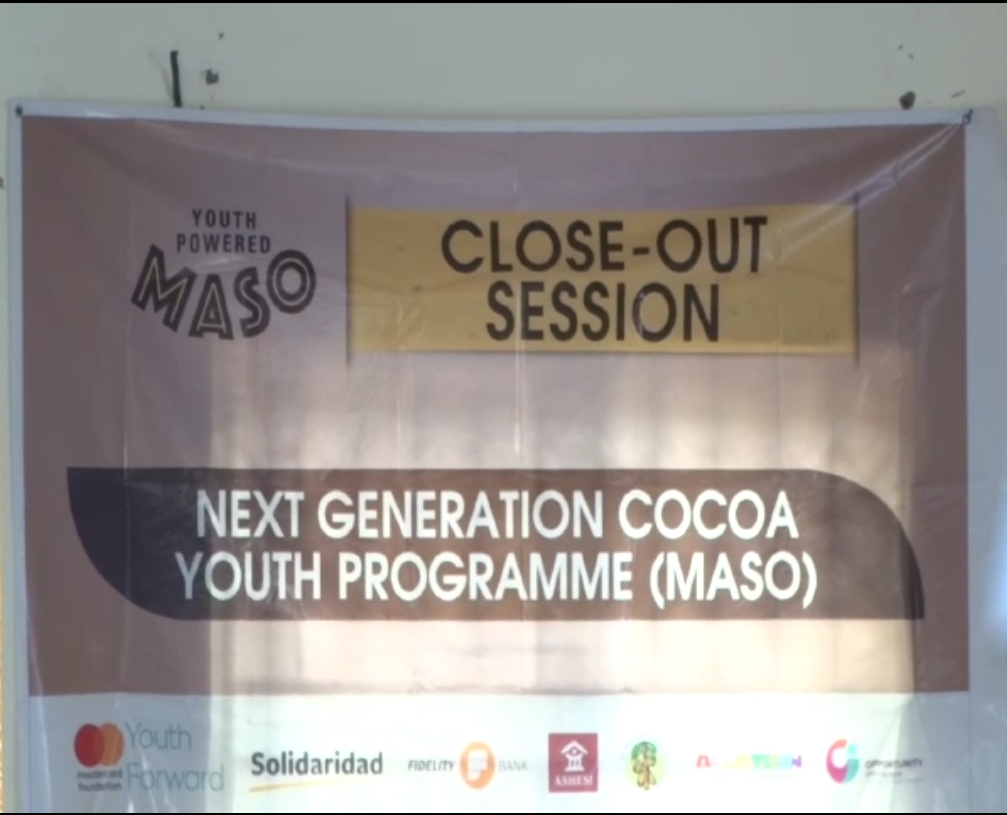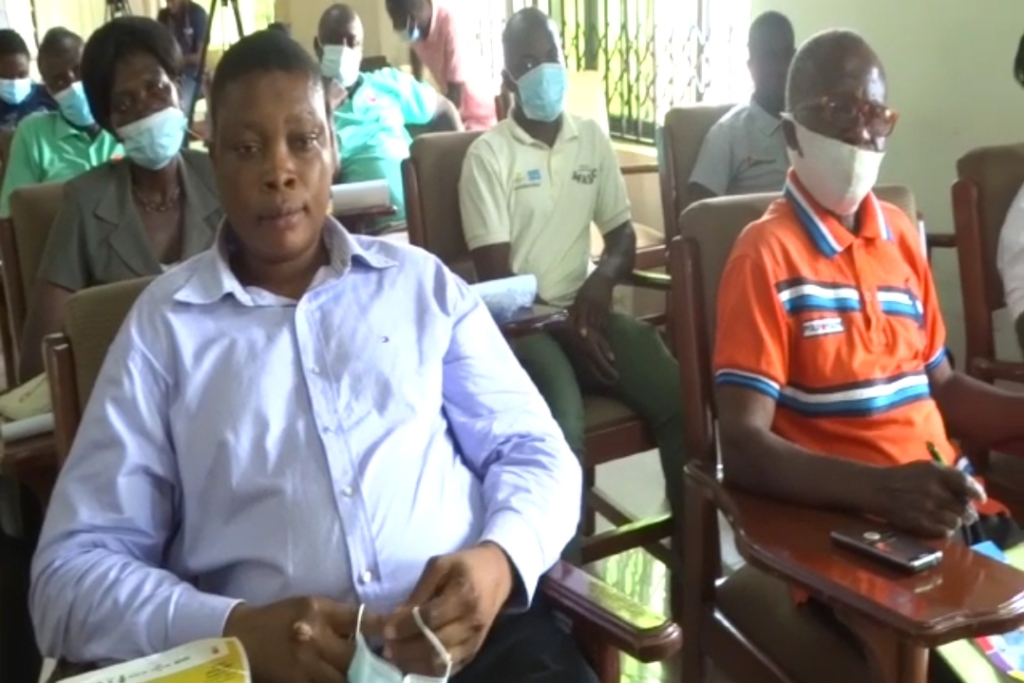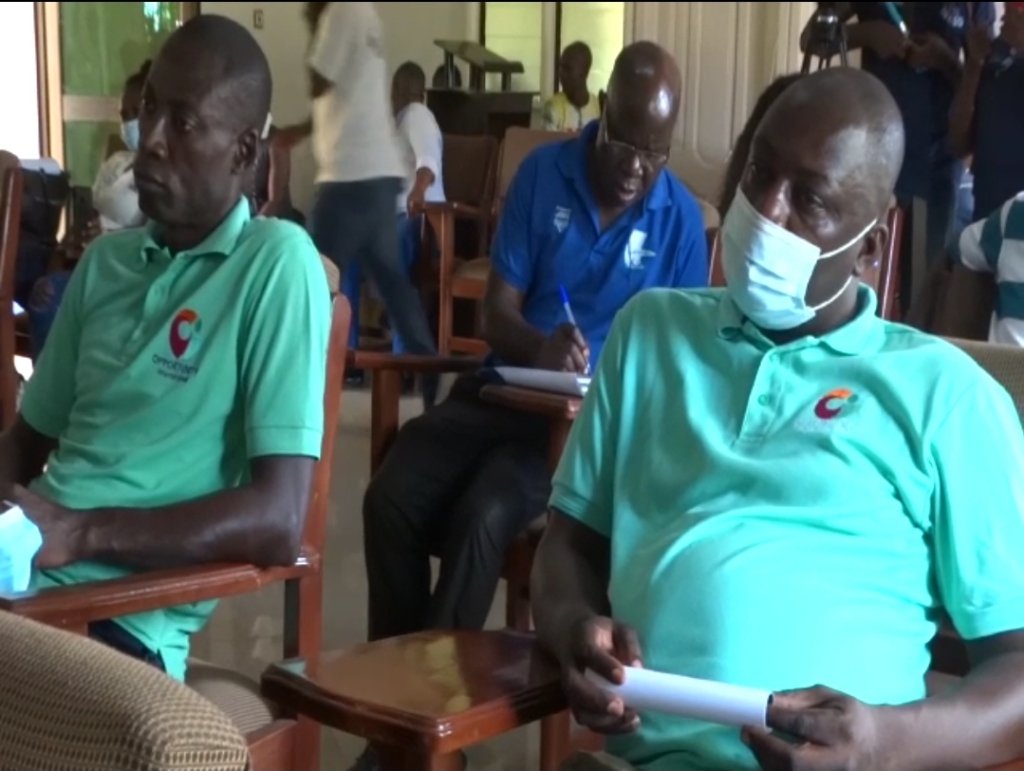Head of Gender and Quality Management Systems of Solidaridad, Stephanie Donu Sarpong has said reiterated the need to lift the cocoa sector by introducing young people and supporting them through financial literacy.
Mrs Sarpong made the comments at the Close-Out Session's Next Generation Cocoa Youth Programme in the Ho West District.

The programme was to acknowledge all the stakeholders for their support and seek support for the youth and also get feedback to enable them to improve upon similar activities.
"It is necessary to help lift up the cocoa sector by the introduction of young people into the sector which would them to become financially independent," Stephanie Donu Sarpong said.
Principal Technical Officer at the Cocoa Health Extension Division of Cocoa Board, Boaz Ofosu Asiedu noted that the programme has impacted positively on the society especially the youths.
Chief Business Officer of Opportunity International, Francis Owusu Ansah talked about giving them credit to improve on their work.

Two of the beneficiaries, Mawuse Hotor and Ali Fawaz noted that with the introduction of the programme, some of them can boast of acres of cocoa lands as international exposure.
"I have really benefited from the program and i have also had opportunities to travel to other countries to learn," Mawusi said.
The programme, though officially over, will continue to help the youths in their chosen career path.
MASO was a five-year programme implemented between January 2016 and December 2020 and focused on providing viable career options for the youth in cocoa-growing communities in Ghana.

It was part of the Youth Forward Initiative funded by the Mastercard Foundation and implemented by six consortium members, made up of Solidaridad, Aflatoun International, Ashesi University, Fidelity Bank Ghana Limited, Opportunity International, and the Ghana Cocoa Board.
The programme has created a critical mass of young entrepreneurial cocoa farmers, as well as youth-led professional service providers within the Ghanaian cocoa landscape.
Over 13,000 young men (57%) and women (43%) in 341 cocoa-growing communities in the Ahafo, Ashanti, Central, Oti, Volta, Western, and Western North regions enrolled in the programme, with over 9,500 of them equipped with relevant tools and skills to take up cocoa farming and related businesses.
Latest Stories
-
President Mahama promises significant drop in Hajj fares next year if…
36 minutes -
Special Prosecutor reiterates calls for lifestyle audits, asset seizures without conviction
57 minutes -
Styrofoam Ban: I-DIEM Africa lauds President Mahama
2 hours -
Trump’s travel ban strains US-Africa relations
2 hours -
UGBS, MIG, ASoE partner to equip students with leadership skills
2 hours -
Bank of Ghana directs banks to review pricing model for customers
2 hours -
BoG says 2024 financial year saw improved performance despite loss
3 hours -
Private sector eager, prepared to work with the government to boost production – GNCCI
3 hours -
Trade Minister spotlights Ghana’s entrepreneurial progress in the USA
3 hours -
Cedi’s sharp appreciation may undermine gains from upcoming cocoa price hike – COCOBOD
3 hours -
Ghana advances sustainable e-waste practices
3 hours -
Fuel Levy a betrayal after fare reduction – GPRTU accuses government
3 hours -
Plastic Industry cautions against hasty styrofoam ban
3 hours -
We will adhere to zero financing of budget – BoG
3 hours -
Greater Accra: Ambulance shortage forces dispatchers to prioritise only critical cases
4 hours

